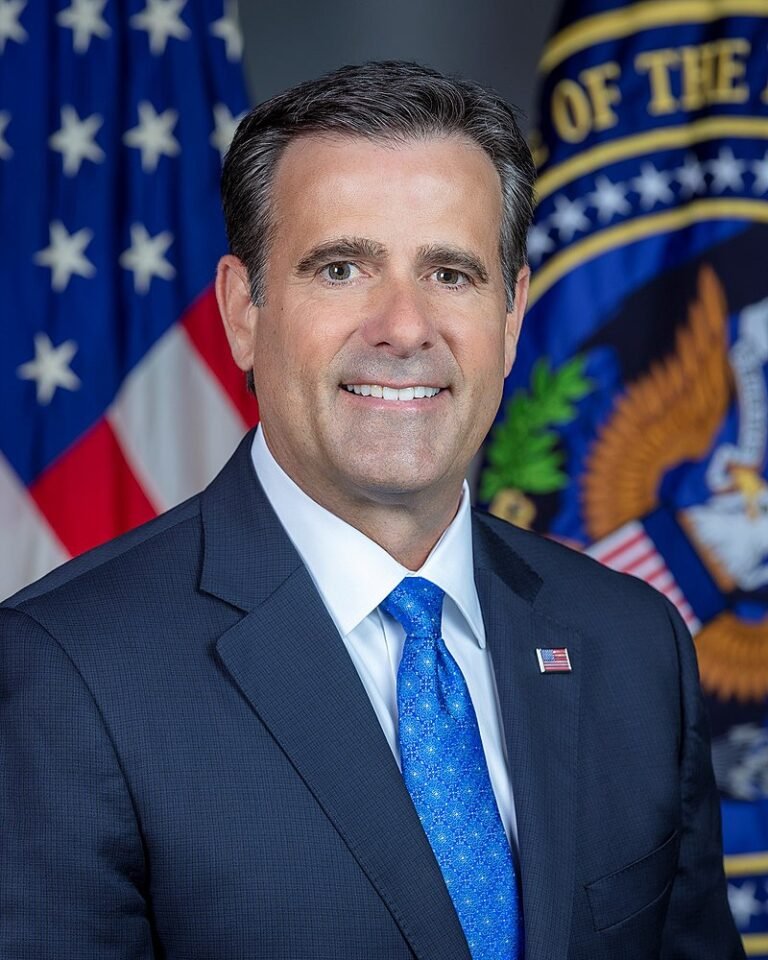John Ratcliffe is a prominent American political figure and legal expert who rose to national prominence during the Trump administration. Born on October 20, 1965, in Mount Prospect, Illinois, Ratcliffe’s career has spanned law, local politics, Congress, and national intelligence leadership. His role as Director of National Intelligence (DNI) placed him at the center of major debates surrounding intelligence and political transparency in the United States.
Ratcliffe earned his undergraduate degree from the University of Notre Dame and later received his Juris Doctor from Southern Methodist University School of Law. After completing his education, he pursued a legal career and eventually became a federal prosecutor. His legal background included a focus on national security, terrorism, and immigration cases. Ratcliffe served as the U.S. Attorney for the Eastern District of Texas during President George W. Bush’s administration, where he was recognized for his efforts to prosecute illegal immigration and public corruption cases.
Before entering national politics, Ratcliffe also served as mayor of Heath, Texas, a small city near Dallas. His tenure as mayor, although limited in national impact, marked his entry into public service and laid the groundwork for a broader political career. In 2014, Ratcliffe successfully ran for Congress, representing Texas’s 4th Congressional District. He unseated a long-time incumbent during the Republican primary, showcasing his appeal among conservative voters.
During his time in the House of Representatives from 2015 to 2020, Ratcliffe served on both the House Judiciary Committee and the House Intelligence Committee. His work in Congress was defined by strong conservative positions and vocal support for President Donald Trump. He became a notable figure during congressional hearings related to the FBI’s Russia investigation and the impeachment inquiries. Ratcliffe was particularly critical of how the FBI and other intelligence agencies handled information during and after the 2016 U.S. presidential election.
His alignment with Trump led to his nomination as Director of National Intelligence in 2019. However, the nomination was initially withdrawn after media scrutiny raised concerns over his limited intelligence experience and some résumé embellishments. Despite this, Trump renominated Ratcliffe in 2020. He was confirmed by the Senate in May 2020 in a party-line vote, becoming the first permanent DNI in months following a series of acting directors.
As Director of National Intelligence, John Ratcliffe oversaw all 17 agencies that comprise the U.S. Intelligence Community, including the CIA, NSA, and FBI. He was responsible for delivering the President’s Daily Brief and coordinating national security efforts across multiple federal departments. Ratcliffe made headlines for declassifying documents related to the Russia investigation and questioning the integrity of earlier intelligence assessments. One of his key focuses was the 2017 Intelligence Community Assessment that concluded Russia interfered in the election to help Donald Trump. Ratcliffe authorized the release of material that suggested the assessment may have been shaped by political bias, particularly the inclusion of the Steele Dossier, a controversial report later discredited by several investigations.
Critics argued that Ratcliffe politicized intelligence to support Trump’s narrative, especially during a heated election year. Supporters countered that he was restoring transparency and exposing flaws within the intelligence community. His actions, including the release of declassified documents and criticism of Obama-era intelligence leaders, made him a polarizing but influential figure.
After leaving office in January 2021, following the end of the Trump administration, Ratcliffe returned to private life. He has continued to speak publicly on national security issues and remains a frequent guest on conservative news outlets. His perspective on intelligence, government transparency, and the role of politics in national security continues to spark debate.
John Ratcliffe’s journey from small-town mayor and federal prosecutor to Director of National Intelligence reflects a career deeply shaped by legal rigor and political loyalty. His tenure marked one of the most politically charged periods in the history of U.S. intelligence leadership, with lasting effects on how intelligence is viewed and managed in America.







